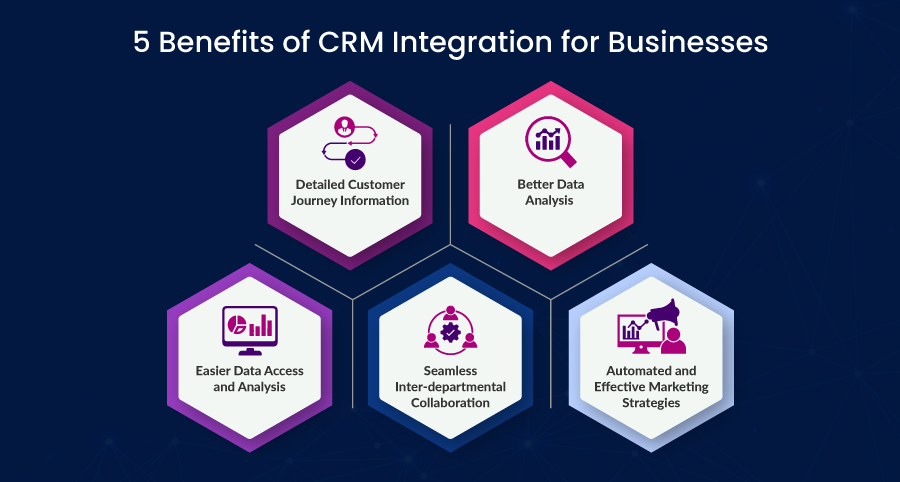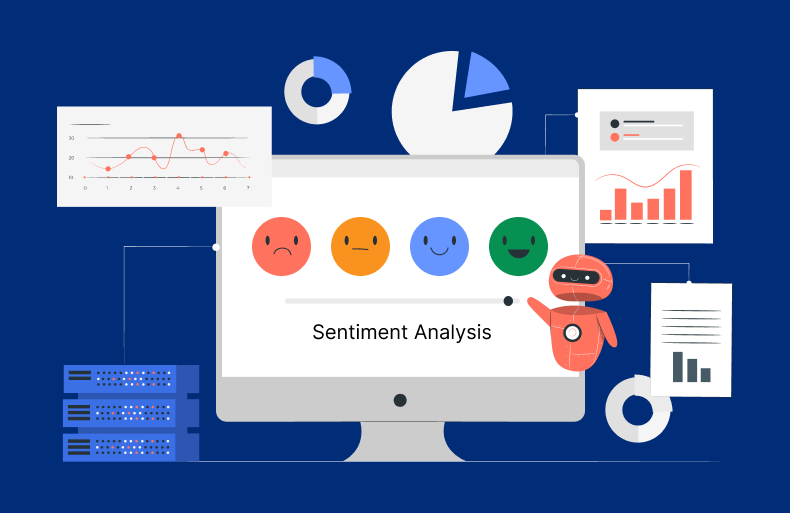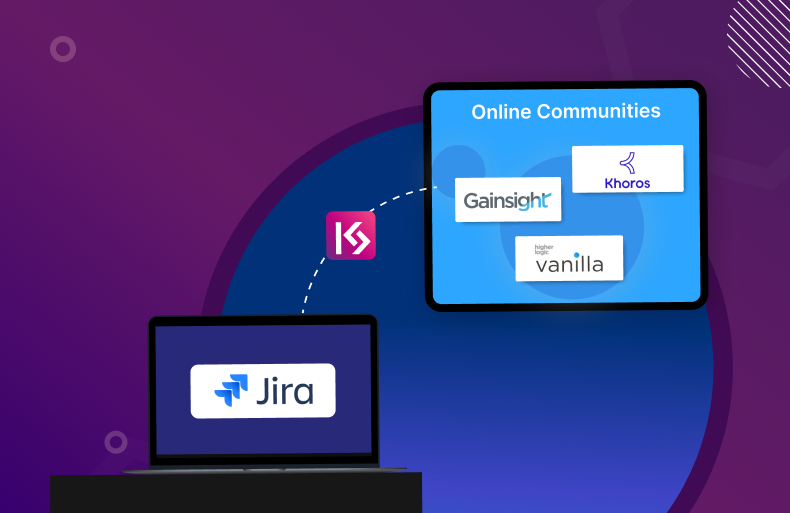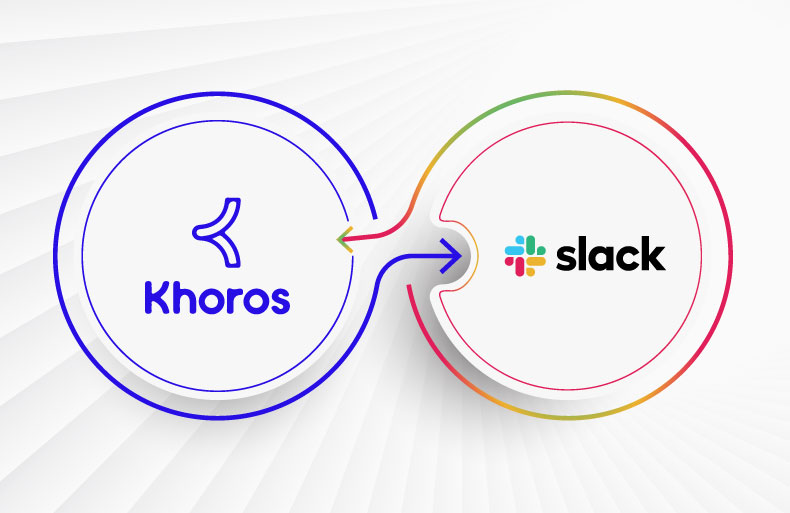CRM Platforms Integration: 5 Reasons You Need it
Customer relationship management (CRM) platforms have become essential tools for businesses of all sizes. They play a crucial role in helping businesses effectively manage and nurture customer relationships. They provide a centralized system to store and organize customer data, track interactions, and analyze customer behavior.
In short, a CRM helps organizations –
- Improve customer service
- Increase sales
- Elevate overall business performance
- Automate and streamline their customer relationship management processes
- Accelerate decision-making
Having said that, a CRM platform only reaches its full potential when it is integrated with other business-critical tools such as an eCommerce platform, email marketing software, and more.
Let’s understand what CRM integration is and how it works.
CRM Integration: What it is and How it Works
CRM integration plays a crucial role in the success of modern businesses. It allows businesses to consolidate customer data from various sources into a centralized platform. By bringing together information from sales, marketing, customer service, and other systems, businesses gain a holistic view of their customers.
CRM integration is important for businesses because it centralizes customer data, enhances operational efficiency, and improves collaboration. By integrating a CRM platform with other business-critical tools, businesses can eventually optimize their processes, deliver exceptional customer experiences, and drive growth.
5 Benefits of CRM Integration for Businesses
Did you know?
56%[i] of customers stay loyal to businesses that acknowledge their preferences?
A CRM integration is a sure-shot way of understanding your customers and delivering personalized services to meet their needs. With its exceptional capabilities, you can enhance customer engagement, ultimately leading to increased conversions and sales.
Here are some of the benefits CRM integrations provide to businesses –

Detailed Customer Journey Information
CRM integrations can provide businesses with detailed customer journey information by consolidating and centralizing data from various touchpoints and systems. Having access to holistic customer data helps businesses understand customer behaviors, preferences, and needs throughout their interactions, enabling them to optimize their strategies, improve customer experiences, and drive better business outcomes.
Better Data Analysis
CRM platforms generate a wealth of data about customer interactions, sales, and marketing efforts. Hence, integrating CRM with other data analysis and reporting tools can provide businesses with detailed and customized reports. Moreover, when data sourced from multiple resources are combined, it offers more accurate insights which empowers businesses to make data-driven decisions.
Automated and Effective Marketing Strategies
CRM integration with a marketing automation tool enables businesses to automate lead-nurturing campaigns. Based on predefined triggers and rules, the system can automatically send personalized and timely emails, messages, or content to prospects at different stages of the sales funnel. This automation ensures consistent and relevant communication, improving lead engagement and nurturing prospects until they are ready to make a purchase.
Seamless Inter-departmental Collaboration
CRM integration with other tools and systems also enhances collaboration within the organization. For instance, integrating CRM with project management or ticketing tools allows teams to seamlessly share customer data, track customer interactions, and collaborate on customer-related tasks. This eliminates silos and improves communication among different teams, resulting in more efficient customer service and exceptional CX. A centralized infrastructure allows teams to access customer data in real-time, ensuring everyone is on the same page.
Easier Data Access and Analysis
Integrating CRM platforms with other business tools make customer data easily accessible and analyzable. For instance, integrating CRM with community platforms allows businesses to collect and analyze customer feedback, and opinions and sentiments about their brand. It helps businesses understand customer needs and preferences better and make informed decisions.
In addition, integrating CRM with data visualization tools enables businesses to create visually appealing and interactive dashboards for better data analysis and reporting. Easy access to data and powerful data analysis capabilities help businesses identify trends, opportunities, and areas for improvement, resulting in better decision-making and business outcomes.
Choosing CRM Integrations for Your Business
When considering CRM integrations for your business, it’s crucial to carefully evaluate the needs and requirements of your organization. Look for integrations that align with your business goals, processes, and workflows.
Here are some possible CRM integrations that you can leverage-
CRM and Ticketing Tools Integration
A ticketing system enables businesses to stay organized and focused, all while delivering efficient customer support. However, having to switch between a ticketing system and a CRM platform just defies the purpose of maintaining efficiency. That’s why CRM and ticketing system integration is the need of the hour. And tools like Sinergify help achieve that effortlessly. It allows you to create a seamless integration between Jira and Salesforce for an efficient and manageable workflow.
Community-CRM Integrations
Online communities are the most-preferred platforms leveraged by the majority of organizations to maintain direct communication with their customers. And integrating communities with CRM platforms can offer a hawk-eye view of customers and facilitate smooth customer interactions. But the main question is, how to integrate community and CRM platforms? Tools like KaseSync offers seamless community-CRM integration between a range of platforms including Khoros, Higher Logic, Salesforce, and more.
Marketing Automation Tools and CRM Platforms Integration
Marketing goes beyond SEO and social media postings, especially in today’s tech-driven era. It has become more complex with advanced data collection methods and multi-channel communication. Organizations are now leveraging marketing automation to nurture prospects with personalized campaigns. That’s why the majority of organizations now integrate their marketing tools with their CRM to streamline lead management, deliver personalized marketing campaigns, and automate marketing processes.
Conclusion
CRM integration is a game-changer for businesses. It centralizes customer data, enhances operational efficiency, improves collaboration, and drives growth.
The benefits of CRM integration are numerous and impactful. By integrating CRM with other business-critical tools, businesses can unlock the full potential of their CRM platform and drive significant improvements across various aspects of their operations.
References
[i] Benefits of CRM: Why CRM Is Important for Your Business









